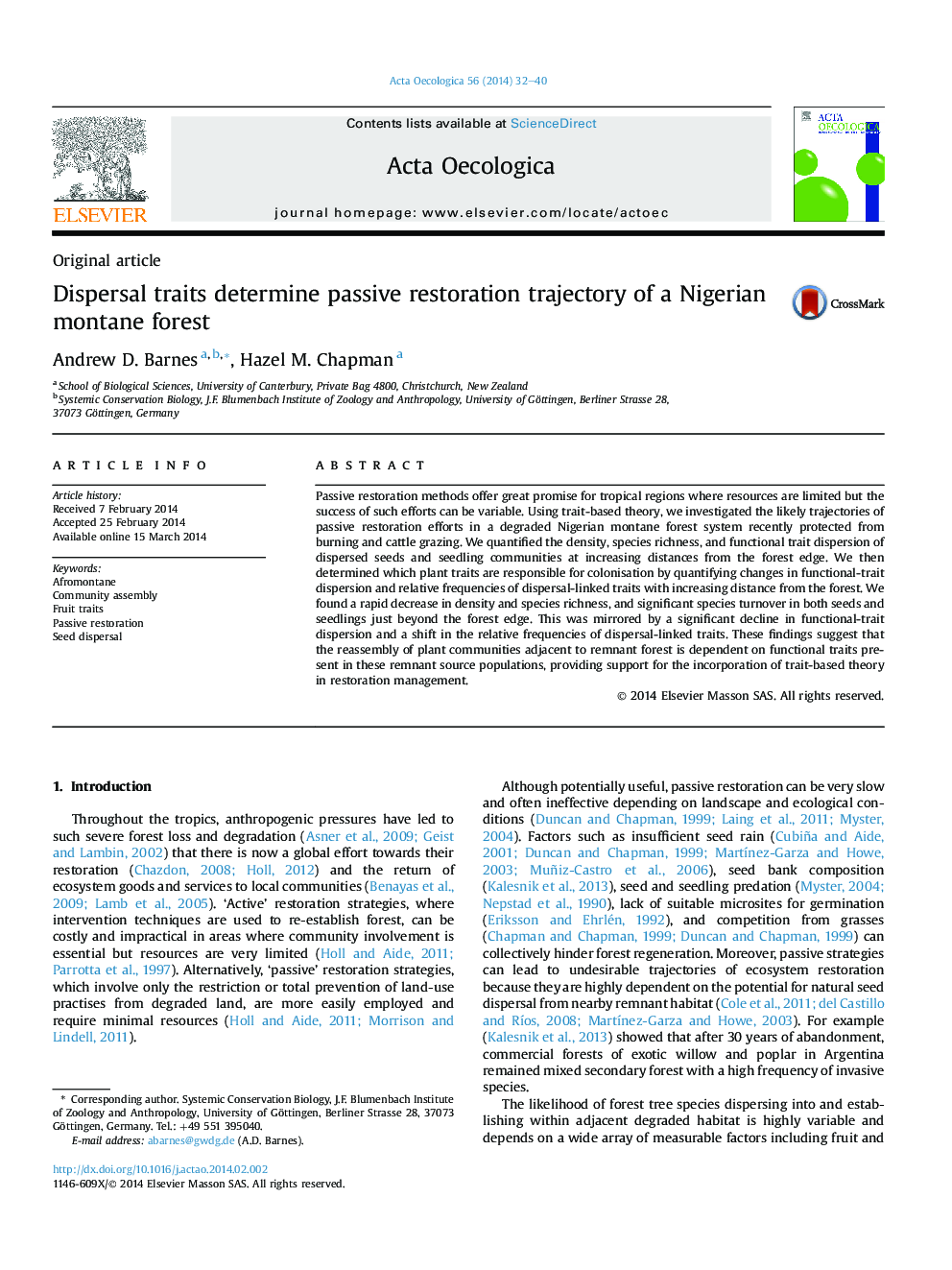| Article ID | Journal | Published Year | Pages | File Type |
|---|---|---|---|---|
| 4381024 | Acta Oecologica | 2014 | 9 Pages |
Abstract
Passive restoration methods offer great promise for tropical regions where resources are limited but the success of such efforts can be variable. Using trait-based theory, we investigated the likely trajectories of passive restoration efforts in a degraded Nigerian montane forest system recently protected from burning and cattle grazing. We quantified the density, species richness, and functional trait dispersion of dispersed seeds and seedling communities at increasing distances from the forest edge. We then determined which plant traits are responsible for colonisation by quantifying changes in functional-trait dispersion and relative frequencies of dispersal-linked traits with increasing distance from the forest. We found a rapid decrease in density and species richness, and significant species turnover in both seeds and seedlings just beyond the forest edge. This was mirrored by a significant decline in functional-trait dispersion and a shift in the relative frequencies of dispersal-linked traits. These findings suggest that the reassembly of plant communities adjacent to remnant forest is dependent on functional traits present in these remnant source populations, providing support for the incorporation of trait-based theory in restoration management.
Related Topics
Life Sciences
Agricultural and Biological Sciences
Ecology, Evolution, Behavior and Systematics
Authors
Andrew D. Barnes, Hazel M. Chapman,
